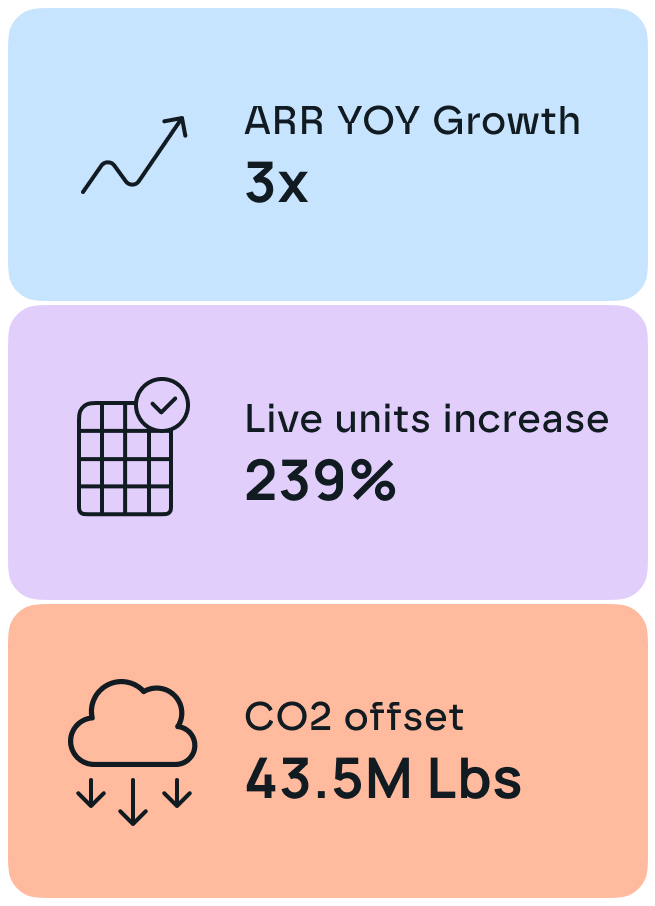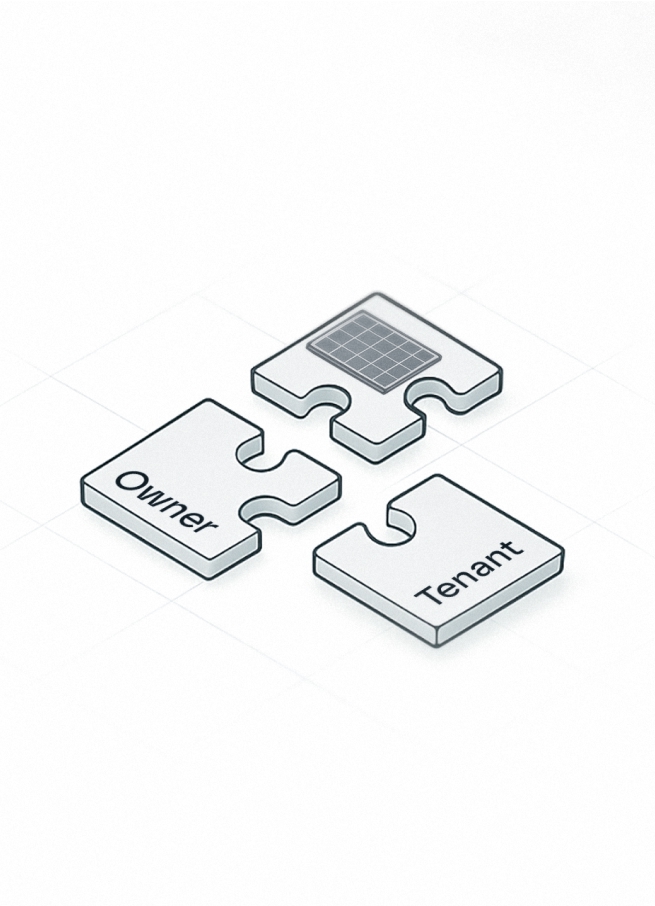CPUC Proposal: Ivy Energy's Response and Perspective

The California Public Utilities Commission (CPUC) has unveiled a new proposal that, if adopted as-is, will significantly affect rooftop solar for renters, schools, and multifamily property owners. This proposal is characterized by discriminatory practices, financial barriers, and inconsistency with California's clean energy goals. While this proposal is concerning and has generated considerable debate, it's vital to remember it's not final. Given its potential impacts on equity and existing legal frameworks, Ivy anticipates modifications prior to an official vote.
Details and Concerns with the Proposed Decision (PD):
- Complete Dis incentivization of Solar and Batteries: This new proposal creates a substantial barrier for multi-unit property owners who might invest in rooftop solar and batteries. By eliminating the accounting framework that enables property owners and renters to consume the solar energy they produce, even when stored in their personal battery, the proposal entirely disincentivizes shared buildings from adopting solar. Customers are effectively forced to sell their solar production to the utility first and then repurchase it at elevated rates. This contradicts the underlying principle of solar self-reliance and puts unnecessary financial strain on property owners and their renters.
- Net Metering and Energy Netting: The PD aims to eliminate net metering and energy netting for all residential and commercial tenants of shared properties. It intends to credit all Virtual Net Energy Metering (VNEM) production at Avoided Cost Calculator (ACC) rates, with an insufficient adder in the first five years. This approach contradicts previously acknowledged principles and recognized facts and ensures that investment in solar and storage on multi-unit properties will be uneconomical.
- Fundamental Physics and Ethical Considerations: The PD overlooks the essential fact that VNEM PV systems offset on-site load, ignoring the basic physics of energy generation and consumption. It would deny multifamily properties the ability to use their solar generation. Furthermore, allowing utilities to capture and resell this solar energy to renters at full retail prices is not only unethical but raises grave concerns around fair housing, property rights, eminent domain, due process, equal protection, and governmental takings.
- Discriminating against Renters: By disallowing renters from benefiting from solar self-consumption, this decision is discriminatory and fails to provide an equitable solution. It has a disparate impact on low-income households and communities of color and prevents them from enjoying the same environmental and economic benefits as owners of single-family homes. California renters, already burdened with some of the nation's highest utility rates, will bear the brunt of this decision—despite CPUC's claim of striving for equality.
- Discrepancy with Single-family Homes Decision: In the past, the CPUC has differentiated between energy used on-site and energy exported to utility grids for single-family homes. This distinction allows homeowners to use their generated electricity, reducing their dependence on utility-bought energy. However, the recent proposal neglects this distinction, effectively forcing multi-meter properties, including renters and schools, to sell their entire generation to utilities at diminished rates only to repurchase it at full retail prices. This divergence contradicts the proceedings' guiding principles, which sought to shield renters from the cost shift spurred by NEM.
- Billing Structure: The commission commented on utility account ownership and master metering laws. We want to provide more context around our service offerings and how both of them provide consumer protections as well as authorization and don’t violate the existing account ownership rules that are in place. Ivy provides two billing experiences that result in the same cost to the renter and the same revenue to the utility. Both solutions are opt-in, but result in different user experiences. The first is a consolidated billing approach where the renter agrees to receive a single bill that includes the utility portion (i.e., the electricity they purchase from the grid) and the solar portion (i.e., the solar benefits they purchase from the onsite solar system) The renter pays this bill to the property owner, who has been authorized by the renter to manage the renter’s utility account. The property owner passes on the utility portion of the renter’s payment to the utility. In this option, the utility cost and data are available to the resident on their statement or by request. The second solution is a dual billing approach where the renter continues to receive a bill from the utility for the electricity they purchase from the grid and a second, separate bill from the property owner for the solar benefits they purchase from the onsite solar system. In both cases, the renter pays the same amount of money and the utility receives the same revenue. The difference lies only in how the utility bill is paid. Consolidating management of the utility account creates a better user experience for renters and should be done with authorization; Ivy does not agree with any party who forces this process as it should be up to the ratepayer what they prefer. In addition, the renter has the option of opting out of the consolidated billing mechanism. If the commission adopts a dual billing structure for VNEM systems only, Ivy has an offering that works well under these guidelines. However, Ivy encourages the commission to consider all of the consumer protection procedures that are established in our consolidated billing process as well as the improved customer experience when compared to dual billing.
- Strong Opposition from Industry and Local Government: The proposal has been met with strong resistance from hundreds of clean energy and renters' rights advocates affordable housing, farms, and schools, 135 local elected officials, and city councils, all of whom highlight its deep flaws and inequities. The Oakland City Council's recent resolution is a prominent example of opposition at the municipal level. The recently adopted resolution by the Oakland City Council calls on the CPUC and Governor Newsom “to reject any proposals that seek to frustrate or dismantle the ability of multifamily tenants and schools to avail themselves of the benefits of local, renewable, and affordable energy through rooftop solar and battery storage.”
- Contradictory Policies: The CPUC proposal stands at odds with CA Title 24, which mandates solar adoption for multifamily buildings. This glaring inconsistency accentuates the disconnect between state ambitions and CPUC's direction, which makes such solar adoption economically unfeasible.
- Profit Protection or Public Benefit?: The driving force behind this proposal seems to be the protection of utility profits. It would allow utilities to falsely classify solar consumption and profit from reselling that to ratepayers at 5-10 times the value compensated through the ACC schedule. This would result in windfall profits to utilities at the expense of some of the most vulnerable ratepayers and is in direct conflict with CPUC and the State of California’s stated policy positions.
Ivy Energy's Stance and Commitment:
In conclusion, amidst the oscillating stances of the CPUC, a recurring theme emerges: a tilt towards preserving utility profits at the potential cost of the public and the environment.
Given the highlighted issues, we anticipate revisions to the PD or foresee it facing legal challenges if approved as it stands. The proposed decision is slated for a vote by the CPUC commissioners on September 21, 2023. At Ivy Energy, we firmly believe in equitable access to clean energy—whether for homeowners or renters. We'll persistently advocate for property owners' rights to generate clean energy on their properties.
We remain unwavering in our commitment to craft a robust response and to be actively involved throughout the decision-making process. Our mission is to voice our concerns and oppose decisions that don't serve the best interests of Californians.
Thank you for your continued support and understanding. We are always here to answer your questions, provide insights, and assist in any capacity. Let's work together for a sustainable and equitable energy future for California.
Immediate Action Steps to Take:
Fill out the VNEM support form on this page for the automated letter-writing app- https://p2a.co/84tosah
Call the Governor’s office at 916-445-2841 or write to the Governor at https://www.gov.ca.gov/contact/.
Attend the voting meeting- https://www.cpuc.ca.gov/events-and-meetings/cpuc-voting-meeting-2023-08-31
Vnem Fact sheet resource: https://docs.google.com/document/d/1SUgD1GRKx620Hy0FemfJSwNIxAogUdV2u5inC-_2xwk/edit?usp=sharing
The most important Ask: Modify the proposed decision to include on-site netting.
Also, please be sure to mention in your comments if you rent or own a multifamily property or are affiliated with a school, school district, college, college district, and/or farm, and whether it currently includes solar or if you would like to go solar - but won't be able to if the utilities have their way.





